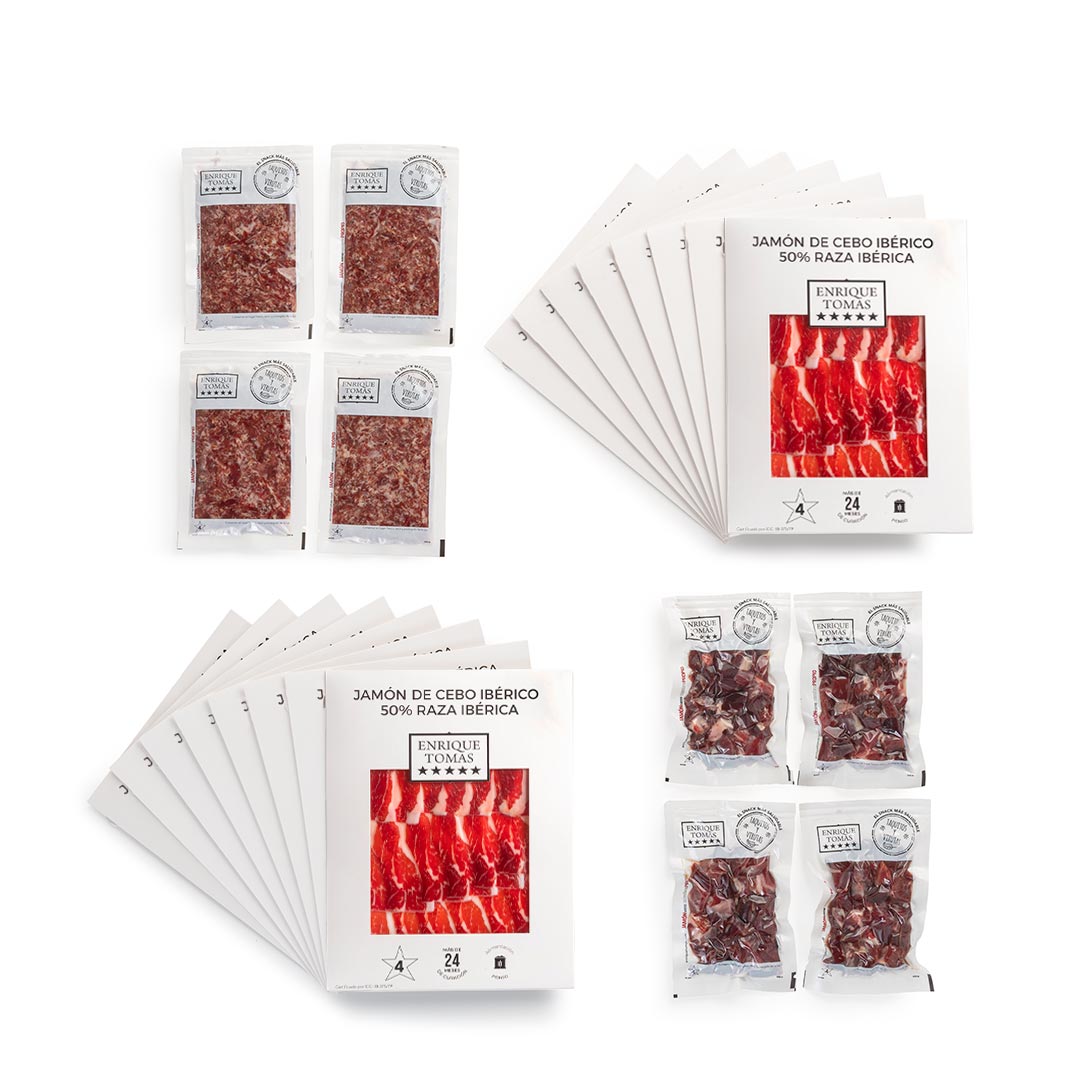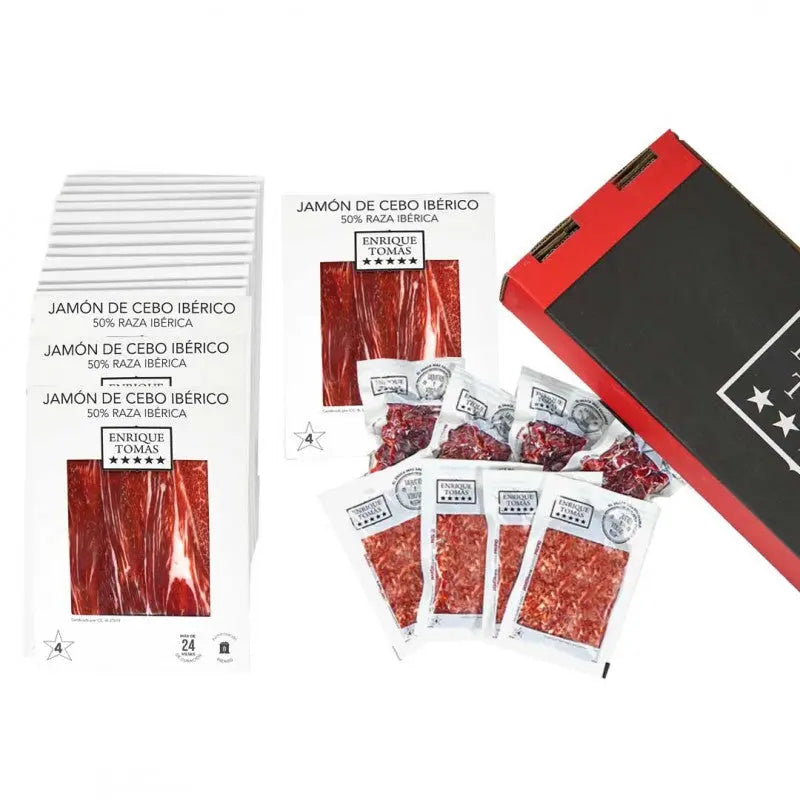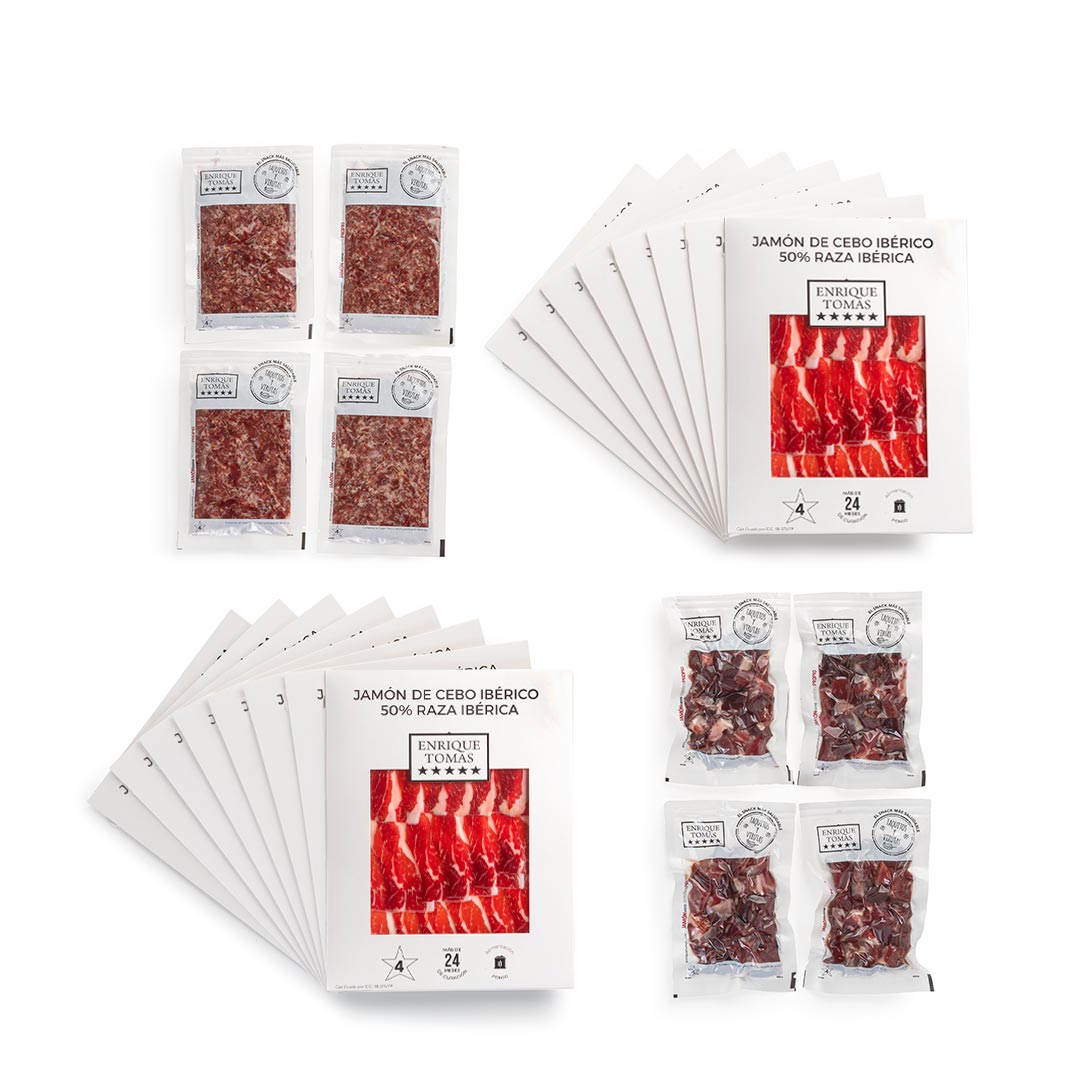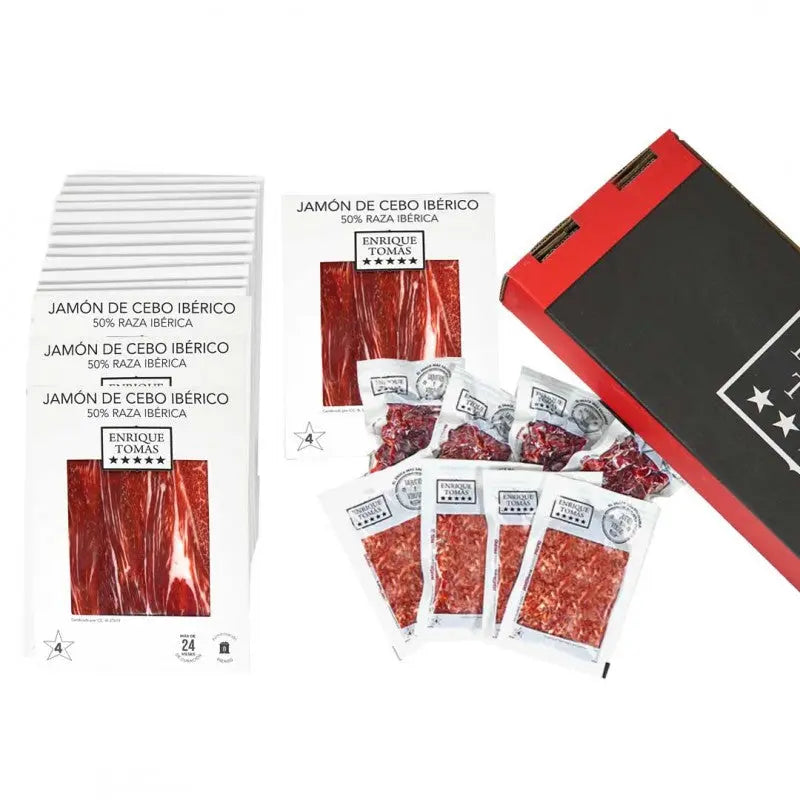

DESCRIPTION
Pack composed by approx:
- 29 sachets of sliced ham 80g
- 4 sachets packs of 80g ham cubes
- 4 sachets of ham shavings 100g
- 1 tray of ham bones
MORE INFORMATION ABOUT THIS HAM
Iberian cured ham
If the pig from which we are going to obtain the hams has been fed basically with fodder, we will obtain an Iberian fattening ham. The fattening process is simpler and cheaper, so we will obtain a very high quality ham at a very reasonable price.
Iberian pig
In the Iberian Peninsula we find a very special breed of pig. The Iberian breed. It has an infinite number of characteristics that differentiate it from the rest of the pigs, but there is one fundamental one. It infiltrates fat into the muscle. That is what makes an Iberian ham have those white streaks that make it a unique product.
Purity of the breed
The degree of purity of the breed of pig depends, naturally, on the purity of its parents. So we can consider as Iberian pig anyone that exceeds 50% of purity. For this we need the mother to be 100% pure.
Feeding of the Iberian pig
The first hundred kilos of weight of any Iberian pig is obtained in the same way as any other pig. First by suckling and then with vitaminized feed. An orderly diet is essential for the animal to be strong, muscular and have resistant bones.
What is a Jamón?
A ham is the result of curing a pig's hind leg in salt. Depending on the type of pig and its diet, the months of curing vary substantially and so will its taste. Due to the large amount of meat in the same ham, we will find different flavours: the maza is the softest part, the contramaza is the tastiest and as we get closer to the bone we find more intensity.
How is a Jamón made?
Once we have the leg of the pig ready, the first thing we have to do is prepare it for salting. The cook makes a v-cut on the pork rind and decides how much external fat he wants to leave. The more fat it has, the less salt it will absorb and the sweeter it will be. Once the previous operation has been carried out, the leg is buried in salt for an average of two weeks. If the cook decides to extend this period, the ham will be more tasty. From that moment on, depending on the type of ham we are going to make, the characteristics of the leg and the taste we want to obtain, the leg will be hung in the drying room until it is optimum for consumption.
NUTRITIONAL INFORMATION
Nutritional Information (per 100g of product)
- Energy Value (KJ/kcal): 1261KJ / 303kcal
- Fats: 19.2g
- of which saturated fatty acids: 7.81g
- Carbohydrates: 0.1g
- of which sugars: <0.1g
- Proteins: 32.3g
- Salt: 4.86g
Non-GMO (Genetically Modified Organism Free)
CONSERVATION
It is recommended to store it in refrigeration between 3oC - 8oC. Read storage conditions
GUARANTEE AND RETURN POLICY
For our return and refund policy click here.











